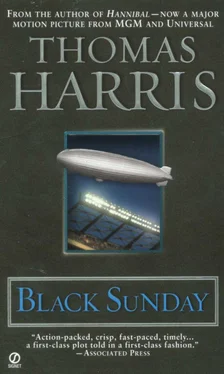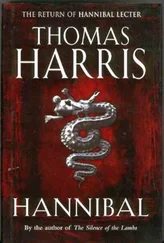Photos of al-Amari and Fasil were being transmitted via satellite to the Israeli embassy in Washington to be forwarded to Kabakov. The negatives would follow. Kabakov winced at that. If they were sending negatives, the pictures must be poor—too poor to be very useful when transmitted electronically. Still, it was something. He wished that he had waited to ask about the Russians. “Muhammad Fasil,” Kabakov muttered. “Yes. This is your kind of show. I hope you came personally this time.”
He went back into the rain for the trip to Brooklyn. Moshevsky and the trio of Israelis under his direction combed the Cobble Hill bars and short-order restaurants and klabash games looking for traces of Muzi’s Greek assistant. Perhaps the Greek had seen the American. Kabakov knew the FBI had covered this ground, but his own men did not look like police, they fit better into the ethnic mix of the neighborhood, and they could eavesdrop in several languages. Kabakov stationed himself in Muzi’s office, examining the incredible rat’s nest of papers the importer had left, in the hope that he could find some scrap of information about the American or about Muzi’s contacts in the Middle East. A name, a place, anything. If there was one person between Istanbul and the Gulf of Aden who knew the nature of the Black September mission in the United States, and Kabakov could find out his name, he would kidnap that person or die trying. By mid-evening he had discovered that Muzi kept at least three sets of books, but he had learned little else. Wearily, he returned to Rachel’s apartment.
Rachel was waiting up for him. She seemed somehow different and, looking at her, he was no longer weary. Their separation during the day had made something clear to both of them.
Very gently they became lovers. And their encounters thereafter began and ended with great gentleness, as though they feared they might tear the fragile tent their feelings built in air around their bed.
“I’m silly,” she said once, resting. “I don’t care if I’m silly.”
“I certainly don’t care if you’re silly,” Kabakov said. “Want a cigar?”
Ambassador Tell’s call came at seven a.m., while Kabakov was in the shower. Rachel opened the bathroom door and called his name into the steam. Kabakov came out quickly, while Rachel was still in the doorway. He wrapped a towel around himself and padded to the telephone. Rachel began to work very hard on her fingernails.
Kabakov was uneasy. If the ambassador had an answer on the Russians, he would not have used this telephone. Tell’s voice was calm and very businesslike.
“Major, we’ve gotten an inquiry about you from the New York Times. Also some uncomfortable questions about the incident on the Leticia. I’d like for you to come down here. I’ll be free a little after three, if that’s convenient.”
“I’ll be there.”
Kabakov found the Times on Rachel’s doormat. Page one: ISRAELI FOREIGN MINISTER IN WASHINGTON FOR MIDEAST TALKS. Read that later. COST OF LIVING. GM RECALLS TRUCKS. Page two. Oh, hell. Here it is:
Arab Tortured Here by Israeli Agents, Consul Alleges
By MARGARET LEEDS FINCH A Lebanese seaman was questioned under torture by Israeli agents aboard a Libyan merchant vessel in New York harbor last week prior to his arrest by U.S. Customs officials on smuggling charges, the Lebanese consul said Tuesday night.
In a strongly worded protest to the U.S. State Department, Consul Yusuf el-Amedi said first mate Mustapha Fawzi of the freighter Leticia was beaten and subjected to electric shock by two men who identified themselves as Israelis. He said he did not know what the agents were after and refused to comment on smuggling conspiracy charges pending against Fawzi.
An Israeli spokesman emphatically denied the allegations, saying the charge was “a clumsy attempt to arouse anti-Israeli feeling.”
Department of Corrections physician Carl Gillette said he examined Fawzi at the Federal House of Detention on West Street and found no evidence of a beating.
Consul Amedi said Fawzi was attacked by Major David Kabakov of the Israeli Defense Force and another unidentified man. Kabakov is attached to the Israeli embassy in Washington.
The Leticia was impounded…
Kabakov skimmed the rest of the article. The Customs authorities had kept their mouths shut on the investigation of the Leticia and the newspaper did not have the Muzi connection yet, thank God.
“You are being ordered home, officially,” Ambassador Tell said.
The corner of Kabakov’s mouth twitched. He felt as though he had been kicked in the stomach.
Tell moved the papers on his desk with the tip of his pen. “The arrest of Mustapha Fawzi was reported routinely to the Lebanese consul, as Fawzi is a Lebanese citizen. A lawyer was provided by the consulate. The lawyer apparently is acting on orders from Beirut and he’s playing Fawzi like a calliope. The Libyans were informed, since the vessel is of Libyan registry. Once your name came into it, I have no doubt Al Fatah was alerted and so was Colonel Khadafy, the enlightened Libyan statesman. I haven’t seen the deposition supposedly authored by Fawzi, but I understand it’s very colorful. Very graphic anatomically. Did you hurt him?”
“I didn’t have to.”
“The Lebanese and the Libyans will continue to protest until you are withdrawn. Probably the Syrians will join it, too. Khadafy owns more than one Arab diplomat. And I doubt that any of them know why you are really here, with the possible exception of Khadafy.”
“What does the U.S. State Department say?” Kabakov felt sick inside.
“They don’t want a diplomatic uproar over this. They want to quash it. Officially, you are no longer welcome here as an arm of Israel.”
“The fat-faced idiots! They deserve—” Kabakov shut his mouth with a snap.
“As you know, Major, the United Nations entertains the U.A.R. motion for a censure of Israel this week over the action against the fedayeen camps in Syria last month. This matter should not be exacerbated by another disturbance now.”
“What if I resign my commission and get an ordinary passport? Then Tel Aviv could disown me if it became necessary.”
Ambassador Tell was not listening. “It’s tempting to think that if the Arabs succeed in this project, God forbid, the Americans would be enraged and would redouble their support for Israel,” he said. “You and I both know that won’t happen. The salient fact will be that the atrocity happened because the United States has helped Israel. Because they got involved in another dirty little war. Indochina has made them sick of involvement, just as it did the French, and understandably so. I wouldn’t be surprised to see Al Fatah strike in Paris if the French sell us Mirages.
“Anyway, if it happens here, the Arab governments will denounce Al Fatah for the four hundredth time and Khadafy will give Al Fatah some millions of dollars. The United States can’t afford to be angry at the Arabs too long. It sounds horrible, but the U.S. will find it convenient to blame only Al Fatah. This country consumes too much oil for it to be otherwise.
“If the Arabs succeed, and we have tried to stop them, then it won’t be quite so bad for us. If we stop helping, even at State Department request, and the Arabs are successful, then we are still at fault.
“The Americans won’t ask the Russians for any intelligence from the Middle East, by the way. The State Department gave us the news that the Middle East is a ‘sphere of continuing East-West tension’ and no such request is possible. They don’t want to admit to the Russians that the CIA can’t get the information themselves. You were right to try it anyway, David.
Читать дальше












